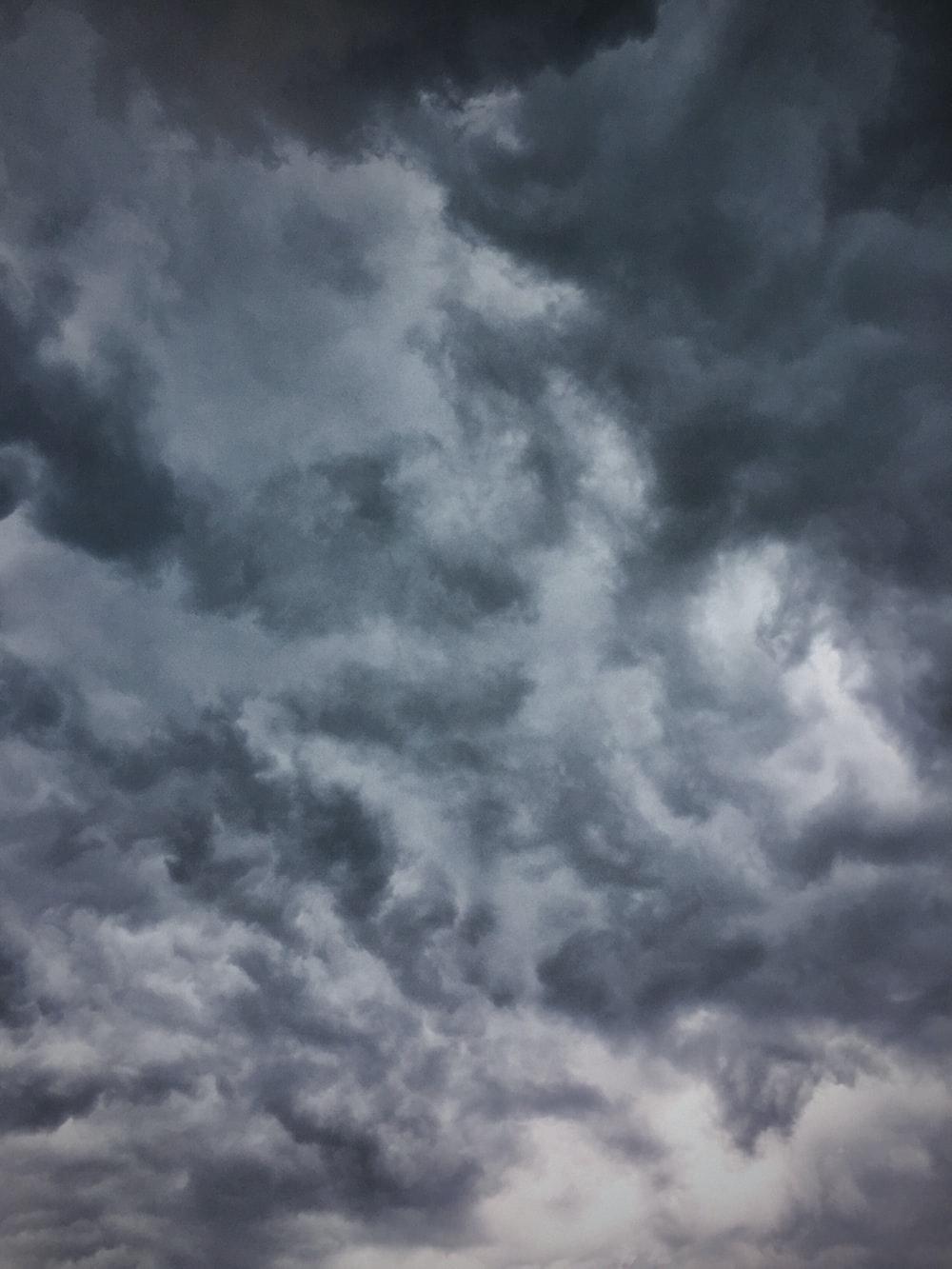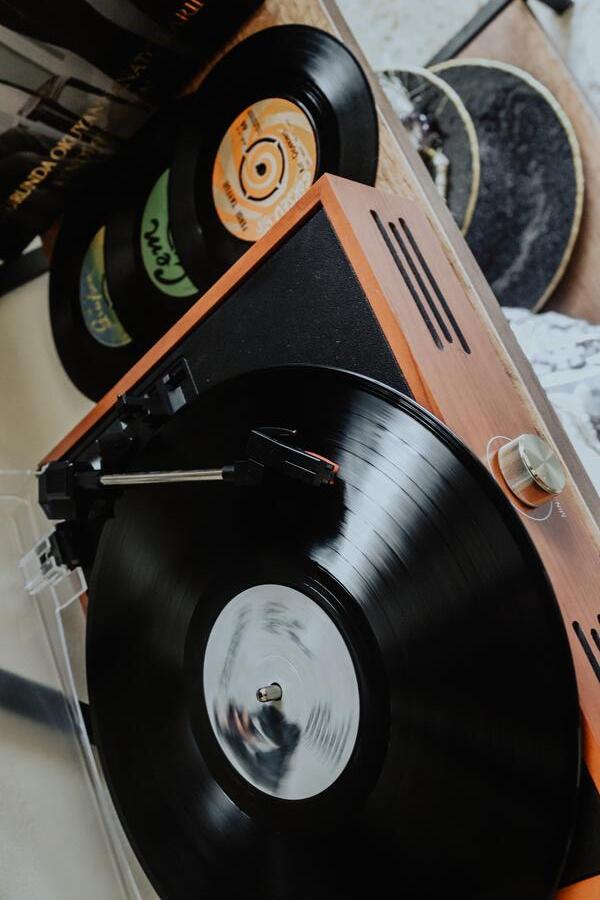

























Wow... We did it. After being graciously thrusted into the role of co-editor during the Winter semester, I never expected any of this. Behind this print issues is newly formed and strengthen bonds that will never break. It is not only the Ignition of music but community, the reinvigorated feeling of belonging. After the first two years of online classes utterly decimating my will to socialize, DEMO have reignited my passion for writing and designing, and reminded me that opportunity is everywhere. You just have to chase it.
Thank you so much Aya and Nick for entrusting me and being the bestest friends <3. Thank you to our talented writers and designers for their thoughtful meditation on Ignition. Thank you to Nicole, Demi, Ethan, and all of HHSMC for being a superb support net! And, as cheesy as it is, thank you, the reader, for allowing us to do what we do!











 "nice" co-editor
"nice" co-editor
!!!"nice" co-editor


If I'm being completely honest, becoming the co-editor of a university-level music magazine with almost two-ish years in my vegetative, bedridden, and chronically online state was something I was never going to be ready for. I felt unprepared, undeserving, and utterly unqualified for the position—which was worsened with my terrible time management skills.








In a way, this magazine tested and challenged my patience, grit, sociability, self-esteem, and non-existent leadership skills. Throughout all the times I've cried about my insecurities over the success of this issue, I can't help but smile at the fact that it's finally here—and I wouldn't have been able to do it without Nick and Andrew, who I now have the privilege to call my lifelong best friends.
Now that we're here, flipping through the physical pages of an issue I've spent so much of my lack of free time on, I just wanted to give a warm and heartfelt shoutout to all the writers, designers, external entities, the Hart House Music Committee, Hart House as a whole, and of course, you, dear readers, for trusting both Andrew and I with such a large task. We wouldn't have been able to pull it off without all your support and encouragement.
I also wanted to take the time to thank Eram and Marina, the lovely co-editors of the 2021-2022 term, who entrusted me with this role. I hope I did both of you justice with "Ignition," and I hope I can make you two proud with this one. Thank you for providing me the opportunity to do what I love and to rekindle my broken relationship with music in an otherwise hellish environment of constant studying and tanking GPAs.
P.S., Ethan, thank you so much for dealing with me as I vented and stressed out about DEMO. Honestly, I don't think I could've done it without you.




The 5th song on Killer Mike’s 2011 EP, Pl3dge, is standard political tract. “Burn” seemingly parodies the idea of non-violence in the face of police repression and a post-2008 capitalist hellscape. Its message is simple enough:


“Me, I suggest you get yourself a shotgun / so when they come to evict you can make ‘em run.” It is one of many calls, literal or metaphorical, to “burn this motherfucker down.”

“Burn” is not done justice without its context. Released a few months after the cop who shot Oscar Grant got off scot free, it captures the righteous outrage felt by Black Americans and those wise masses who hate the police. It is a song written in the face of a broken system and, in my opinion, a textbook protest song. Unfortunately, that textbook is rather hard to define.






A quick flip through RadioX’s “The 50 Greatest Protest Songs” leaves us with a dizzying array of Nu Metal, Punk, Folk, Pop-rock, Rap, Funk, Pop-Punk and more. The waters are only muddied further when one reads other equivalent compilations. In a maddened stupor, I consulted the “Protest Song” entry on Wikipedia and found no satisfying answer. The unhelpful definition I have arrived at is:








A song that is written in, used during a, consumed by those who wish to, or interpreted to be in, protest of a given social or political issue.



The fact of the matter is, protest music isn’t a genre. It’s more of a human phenomenon. People are angry and generally appreciative of the organized noise we call music. Eventually, the two are bound to interact. Instead of offering anything resembling a comprehensive history, I’d invite readers to consider two brands of ‘protest song’ through this article. The first being music that epitomizes a burning car - musical fuck-yous and adagios in anarcho- minor. The latter being those careful subversions that can unify and shape a movement.


Months after the ‘92 Rodney King Riots, Rage Against the Machine released the now legendary “Killing in the Name of”. Perhaps best known for the refrain “Fuck you, I won’t do what you tell me”, the track comes in at #6 on Rolling Stone’s list of top protest songs of all time and comes up on almost every other list of protest songs I’ve come across. Nearly every song on that album is a protest song in its own right. Its messaging is radical and revolutionary despite the gross irony in the comfortable millions it netted the band of supposed socialists.


Still, I want to take a moment to recognize the immense power an album like Rage Against the Machine had. It is probably the most radical, unapologetically commie- rock to ever reach the kind of commercial success it did - perhaps a sign of a time when the Zapatistas had taken Chiapas and when unadulterated liberal hegemony was being questioned.

More recently, IDLES has emerged with a radical message. In 2019, the iconic British postpunkers took to the stage of the Downs Festival and introduced each track by making it clear that they were “antifascist songs”. In 2023, they were nominated for a Grammy which somehow found its way into Ozzy Osbourne’s 74-year old hands. Still, one of the biggest rock- bands of our day have gone on record as “lefty and soft.”


protest joyous. Sure, it’s a furious album that takes no prisoners with its pugilistic vocal delivering, pounding drums, and wailing guitar tones, but it’s also pretty far from selfserious or aggrandizing. It is simply a piece of media anyone can put on to help get themselves through their days and it’s made by a couple of British weirdos, jumping around in their underwear.
The word revolutionary carries a handful of aesthetic and political connotations. For me, it’s the image of a protestor, probably in black bloc, with a molotov cocktail. They take that signature petrol bomb pitcher stance as they hurl it towards a riot line—any photographer’s dream shot. But really, the word can and should mean so much more than that. In a society where everything, including the very act of protest, is commodified (thank the Jenner x Pepsi collab for that one), sometimes the most revolutionary thing you can do is be earnest and exist in a community intentionally.
“I should like this movie.” “I should listen to this song.”
When I started this article, I had written about 500 words on the history of Appalachian coal miner’s union songs. I talked about the Coal Wars, the Battle for Blair Mountain, and the musical tradition that accompanied it. After all, “There is Power in Our Union.” Certainly, it’s protest music, but it feels limiting to cap it there. In a world of constant performance, music offers us a unique opportunity to be vulnerable. We should embrace it.
Music is one of the most human things we can do. When surrounded by systems that seek to dehumanize, whether that be coercive apparatus of the state or even a shitty boss at your 9 to 5, playing and listening allow us to assert our own humanity. In the words of the late great John Coltrane: “You can play a shoestring if you’re sincere.”
Bands like IDLES capture what is a perhaps a distinctly contemporary malaise with the trite politics of self- identified radicals. I don’t think I’m alone in resonating with Nadia C’s “Your Politics are Boring as Fuck.” The simple fact of the matter is, we as a generation can look back upon the cooption and failure of nearly every radical movement that came before us. It’s fucking exhausting. The problems are all the same, but the playbook is exhausted.
IDLES’ 2018 Joy as an Act of Resistance in many ways answer Nadia’s call to make to make politics and
Modern life under capitalism is a series of atomizing rituals beginning with the facsimiles of social interaction fabricated by the likes of Zuckerburg and Musk, and ending somewhere between a job interview and a retirement that may never come for some of our generation.We live isolated lives and force ourselves to perform as students, employees, and even friends and families. This performance extends to the point where we perform to ourselves. We try and train our brains like Pavlov’s dog, foaming at the mouth for cheap serotonin and conformity.
All music can be protest music in a world like ours. There’s always something to be outraged about and something to break down over. What really matters isn’t what some guy in a University of Toronto music magazine tells you it is, it’s what helps you through the complex task of existing in the 21st century. It’s barely a question of politics or protest. It’s a question of joy or misery.
Note: The song “Break Stuff” by Limp Bizket is the culmination of Mountain Dew’s marketing efforts and the military industrial complex. Thus it shall never be a protest song. Fuck you, Fred.



 Writer Hayden Zahary
Writer Hayden Zahary
I’ve noticed something of a trend among music fans of an older, slightly less ‘terminally online’ generation than our own. When they talk about music that’s important to them, they tend to list off a lot of specifically local artists. In my case—thanks to where I live—it’s a lot of Toronto artists, and, more broadly, Canadian ones. I’m usually forced to admit that I have no idea who any of these people are. With what I assume must be a sheepish expression on my face, I have to shake my head and say that I don't know anything about these local heroes.

Having had a few interactions like this, I started thinking about the origins of this generation gap. It seems pretty clear to me that it stems from the enormous differences in the ways that music (and media more broadly) made its way to these people when they were our age and how it makes its way to me right now. Obviously, it’s the internet. For us, music listening is constrained only by the languages we know and how much time we’re willing to spend, while members of these older generations were beholden to what information could physically reach them in the place that they lived. As somebody who “got into music” around 2016-2017, my listening was always mediated by the internet. After the music industry was forced to operate entirely online for two years, the revived interest in live music and physical media has been quite powerful, and I think that makes it particularly interesting to compare how the digital and physical approaches differ.
The first difference that I’ve noticed is in the way that finding music through online spaces affects the sense of community. Virtually all the music I’ve listened to of my own accord has been through services like Youtube or Spotify. A significant amount of it has been due to these sites’ recommendation algorithms, and even when I was finding stuff ‘manually’—it was through the internet. I’ve trawled through Reddit threads, scoured lists of bands’ influences from Wikipedia, dug through the archives of Pitchfork et al., and most of all, I’ve spent far too much on the website RateYourMusic. These are all relatively abstract ways of finding music. In these contexts, my role is as an anonymous internet browser who could be just about anyone in the world.
However, for those whose musical experiences were bound by the physical world, what they listened to was more dependent on where they went and where they lived. If you were learning about a band from someone you talked to—from finding something in a record store or going to a
concert—your concrete presence was part of the experience. There were music magazines and radio stations, but these only reached as far as the postal service or their antennas could carry them. Inevitably, your taste would end up geographically limited compared to what someone like me could have, but it seems to me that this gives you a greater sense of community. Certainly, when I watch interviews with musicians, this comes out a lot. Most musicians will mention some obscure band from their hometown who has a legendary status for them, and who they usually knew personally or at least saw live a million times. This real-worldbased music community is what lets you become part of a ‘scene’. Obviously, people who are active about going out and getting involved with music still have these things, but I’ve never felt particularly in touch with any scene with my individualistic and virtual pursuit of music.
In addition to the effects it can have on taste and community, specific online communities can also have impacts on the terms that we think about music in a broad sense. I’m going to look at RateYourMusic (invariably referred to by its users as RYM) for one example, as it’s the site I’ve used the most. It’s essentially a giant encyclopaedia of musical releases, where users of the site can catalogue and rate music. Based on an algorithm that takes into account the overall average rating combined with the number of ratings the album has received, it’s assigned a place in a massive overall chart. These charts are the website’s standout feature—you can simply go to the charts tab on the website and pull it up, and there you have the official RYM list of the best albums of all time. You can also filter the chart by a number of different factors, so you can generate a chart of the best albums of 2022, the best albums of 1981, the best emo albums of all time, etc.
When you look at an artist’s page, the albums which rank high enough on the list (according to another algorithm) show up with their titles in bold. Both the chart and the status of being ‘bolded’ confer an album with its level of prestige on the site. In high school and more recently, I have listened to a lot of albums based on this site’s opinions of them. The community has a particular taste which is usually concordant with mine and I’ve found a lot of music I love from these recommendations—but, like I said, the website’s community very much has its own own particular taste, and the way the website is programmed affects the way that discourse around music functions there.
The way that RYM works implies a hierarchical, almost a mathematical way of thinking about music.
Every album has a ranking on a chart—be it the overall one or a more specific one—and while using the website, you’ll probably be inclined to base your listening around what’s high up on the chart. Any artist you get introduced to can instantly be quantified by going to their artist page on the site to see what the verdict of the redoubtable crowd is. The whole ratingbased system pushes you to think about music on a five-star scale of quality, which might discourage more complex thinking about the merits and failings of what you’re listening to or the kinds of different emotional effects different songs can have.
Though RYM is the site that I personally have used, I’m sure that any other platform one might look to for discovering things to listen to has its own functions, influencing its discourse in its own particular way. Looking at the inner workings of RYM, you can see how the structures which have been hardcoded into the site shape the kinds of conversations that happen on it. These kinds of concrete, numbered lists and scores don’t exist in the real world! Weighing the pluses and minuses of a work in the imperfect dynamics of human interaction is very different from throwing up a review behind a username or choosing a rating on a slider.
The internet has had an awful lot of benefits for music fans, ones which are mostly obvious. We can access infinite amounts of music and information about music for free (or nearly for free, at least). People who live in rural areas where there might be no audience for the music they love can access people to talk to about, and hear stuff that might otherwise never make its way to them. These are great things, and if music is merely a solitary hobby for you, one enjoyed alone in a bedroom with headphones on, the digital approach to music listening is perfect. Certainly, I’m that kind of solitary music listener to some degree, and I’m sure I’ll keep on listening to old and esoteric shit I find on the internet.
But I also feel the benefits of the opposite, real-lifebased approach. I’ve played music in a band with other people and I’ve been to concerts, and the sense of community that those activities give you is something that I think is legitimately special and valuable. That’s not something that I have ever gotten as a withdrawn listener. I’ll admit to being somewhat jealous of the sense of direct, personal involvement with music that those who grew up in earlier decades have. With the industry in a new, post-COVID phase and everything that comes with that being the theme of the article, perhaps now might be the ideal time to consider the differences between these two approaches.


 By Ahsen Bhatti By Ahsen Bhatti By Ahsen Bhatti
By Ahsen Bhatti By Ahsen Bhatti By Ahsen Bhatti








Hip-Hop has been declared the most popular genre of music on the United States Billboard charts, overtaking other mainstream genres with new hits and superstars being created on an almost daily basis. However, this hip-hop is vastly different from the hip-hop of the 70s and 80s, a derided and persecuted genre in its birthplace of New York. Never escaping that local sphere without the dedication and resilience of early hip-hop pioneers such as DJ Kool Herc, Rakim, and Grandmaster Flash. This generally accepted narrative surrounding the genre’s rise to prominence ignores the contributions made by women at every step. Without which, it is unlikely such dominance over the musicindustrycouldhave EVER beenachieved.


ThelateSylviaRobinson,akathe "MotherofHip-Hop",wasaproducerandsingerwho foundedSugarHillRecords,producingoneofthe first-everhip-hoprecords,“RappersDelight” in1980.Asamoldfortheera’sfuture records,thesingleimprovedtheimage ofthegenrebeyondliveperformances toanew enterprise thatcanbe monetized byrecordlabels.


Robinson later went on to produce “The Message” with Grandmaster Flash and the Furious Five, the template for conscious hip-hop records and one of rap’s first significant introspective on current societal affairs. The song references the plight of a woman who has been forced to live in conditions of squalor and prostitution duetoaninabilitytosupportherself
Despite the societally relevant and provoking content of the song, the rarity of such content in hip-hop exposes a common issue with the portrayal of women in hip-hop; while women's issues are highlighted in songs such as “the Message,” “Brenda’s Got a Baby” by Tupac Shakur, and Lauryn Hill’s “Doo Wop (That Thing),” in the majority of hip hop songs, they are portrayed as littlemorethanobjects Trailblazing femaleMCssuchas








MCLyte,QueenLatifah,FoxyBrown,MissyElliot, LaurynHill,andErykahBaducarvedouttheirown laneofhip-hopcenteredaround confidence, success,and gaining independence inamale-dominatedfield. Unfortunatelytheireffortswere overlookedbymanyinalargercultural context,butthe tenacity and passion displayedbytheseearlyinnovators laidthegroundworkforfuturefemale rapperto maintain their sphere of influence in theculturalmainstream.

Attheturnofthemillennium,hip hopwasinaprecariousposition, but managed to evolved to accommodate new talents such as Grammy nominated artists RemyMaandM.I.A.2007sawthe rise to prominence of a vibrant and spirited new artist, Trinidadian-bornNickiMinaj,who was defined by her energetic flowsanduseofmultiple distinct cadences. Her verse on Kanye West’s2010song,“Monster”wasa definingmomentfortheyear,with Pitchfork describing it as “masterfullymanic”andTheNew York Times calling it “legendary.”
The song also featured rap heavyweightssuchasJay-Z,Rick Ross, and Kanye West, which signified and established Nicki Minaj as living proof that female rappers can outshine their male peers when provided the opportunity. With the support of established acts including Lil WayneandhislabelYoungMoney, Minaj capitalized on the success of “Monster,” becoming the first female rapper to perform at YankeeStadiumandreceivingher first Grammy nomination later thatyear.

withherchameleonicstyles,allowing her to fit in alongsideother popular new talents of the 2010s such as Drake,BigSean,andFuture.Inspite of her accomplishments and barrierbreaking performances in hip-hop, NickiMinajhasattemptedtoprevent other female rappers from rising to her levels of fame due to a fear of losing her place in a competitive category.However,withthepassage oftime,Minajhaschangedhertone. Most contemporary popular female rappers share thestageanddotheir best to foster an atmosphere of support and healthy competition.


Another notable contemporary female rapper who, while not reaching the commercial peaks of Nicki Minaj, has accumulated critical acclaim of her own with her unique blendofconscioushiphop,jazz,and boom bap, is Rapsody. Making her debut on legendary producer 9th Wonder’sTheDreamMerchantVol.2, Rapsody quickly made a name for herself through thoughtful lyricism that uplift black women. Her profile rose on a national stage with her verse on Kendrick Lamar’s awardwinning 2015 album To Pimp a Butterfly, where she advocated for the erasure of colorism in American society.Shecontinued thelegacyof predecessors by making socially conscious music blended with personal narratives, which has gained her the respect of her peers andakeypositioninhip-hopculture, whichsheconsiderstobesomething thatmustbeheldinhighesteem.
innovativefemaletalentpresentin each of them. Feminism has affected hip-hop in waves, giving artists like Cardi B, Doja Cat, and Lizzoa stronghold overmodern

Minajwasthefirstinaneweraof female rappers, who were not simply content with sharing the stage with male emcees, but preferred dominating over the genre and including themselves inconversationsforthe greatest rapper of all time instead of settling for the greatest female rapper. She solidified herself as theleaderofanewgeneration


The advent of social media and its intersection with the music industry has cleared new pathways for upcomingartistswhopreviouslyonly hadlimitedaccessthroughlabelsfor achieving the mainstream success theydesired.Genre-definingartistsof the past two decades such as Eminem, Kanye West, Drake, and Future have been able to have an indelible impact on the culture and laid down a foundation upon which subsequentrapperscanfurtherbuild Hip-hop's relevance and diverse legacy.Thegenrehasexplodedinto anumberofpopularsubgenres,with

pop rap, expressing similar ideals to previous legends through independence and owning one’s sexuality. Along with this smaller but equally talented female hip-hop artists likenonameandCheNoirhave gained prominent profiles in Chicagojazzrapandboombap respectively, which are predominately male subgenres ofrap









Rapidprogresshasbeenmade inthepastdecadeinfurthering theprofileoffemaleMCs,dueto the admirable dedication of women throughout the genre. Music beingutilizedasanoutlet for frustration of being relegated to a side role in the industry. They have refused to allow themselves to be considered as of a lesser standing compared to male MCs, and display a nuanced perspective into the world around us which often goes ignored.Thereisstillworktobe donewithgivingfemalerappers the laurels they deserve, but thereisa vast fieldof emerging talentsfromwhominsightfuland well-craftedworkcanbelooked forwardtosoon..



Asclubsscrambledtomaintainsomelevelofactivityamidstthe lockdown,theUniversityofTorontoMississaugaCampus’music clubsstruggledinmaintainingactivity.Unlikeotherclubsthat couldmovetheiroperationsonlinewithoutahitch,therewasno wayfortheUTMMusicClubandHarmonixtofacilitatethat process.Forstarters,theycouldnotaccessanyoftheirin-person facilitiesandequipment,andanyonewho’striedtojamonline knowsitjustdoesnotwork.So,forthebetterpartoftwoyears,the musicsceneatUTMcouldberepresentedbyablackCBDrumkit collectingdustinsideaStudentCentreoffice,undisturbed.Once pandemicrestrictionswerelifted,Harmonix’snewiteration steppedup.
Thoughthepre-pandemicmusicclubsatUTMaredead,itisstill possibletopreserveitshistorythroughstoriesabouttheir experiences.Theseclubsweren’tjustextracurriculars,butthey werebolsteringcommunities,enjoyedbystudentsandfaculty membersalike.Tobothpreservehistoryandfillthegapsinthe longandwindingstorythattookUTMmusicenthusiaststo purgatoryandback,Idecidedtopursuethesestoriesthrough thosethatcreatedtheseexperiencesbothforthemselvesand others.IinterviewedexecutivesfrombothversionsofHarmonixto findthepast,present,andfutureofmusicatUTM.
TogainperspectiveonHarmonix’spast,IspoketoNicholasTessier: analumniwhograduatedfromUTMin2021.Asastudent,Nicholas wasamemberofboththeUTMMusicClubandHarmonixbefore becominganadministratorinthelatter’sDiscordserverafterthe pandemichadshutdownin-personevents.Asapianist,guitarist, andvocalist,NicholasbeganhisinvolvementwithHarmonixinfall of2018,thoughhe’dbeenjammingoutoncampusabitbefore that.
“IwasamemberoftheothermusicclubbeforeIjoined Harmonix—thisisaneatstory.I'mnotsureifthey'restill around,butessentiallywiththatclubtheywouldjust setupsomeinstrumentsinthe[FireplaceLounge], whichisrightabovethe[BlindDuckPub].Youknow, we'djustjamoutandstufflikethat;rotateinstruments, rotatesolos,thingslikethat.Andoneoftheguys,his nameisBogdan,Iwasjustchattingwithhimandhe suggestedIcouldtryoutHarmonixbecausethat's comingup.So,ImetadrummerattheUTMMusicClub, hisname'sAdrian.Wekindofjammedthereandthen BogdanintroducedmetoAdrianandIwasjustchatting withAdrianforhoursatthebarbeforewejustwentto theHarmonixevent,thefirstone[oftheyear],andwe justjammedtogetheroverthere.Itwasprettysick.It wasjustlikeaspurofthemomentthing,youknow,it's like‘alright,Icanstayacouplehoursanddoanother jam’.So,that'skindofhowitwent.”
WhenaskedaboutHarmonix’sgoals,Nicholasrespondedthat “Ithinkitwasmainlyjusttocelebratemusicandjusthaveafun timeinanorganizedwaywherewecouldjustperformsongs,” likeningHarmonix’seventstobeingmorelikeparties.Giving credittothepassionatecommunity,hementionedthat Harmonix’sexecutives“managedtopromoteandsecure peopletocomeinforaneventwheneveritseemedright...they didtheirduediligencetoactuallyrunthething”.Nicholasalso spokefondlyofhisfellowmusicians,statingthat“itwascool thatpeoplewouldshowatthe[UTMMusicClub],therewasa lotgoingonthere.Thejamsareprettyconsistenttoo,likeonce aweek.Thatwasawesome.Youcan'taskformuchbetterthan that,right?Imetsingers,saxophoneplayers,guitarists, drummers;andgotalotofgoodconnections.Oneofthe guitarists,Istillmeetupandjamwithhimwheneverwecan.”
However,therewaslesstobesaidofsupportfromUofT. Nicholasmentionedthattherewasvirtuallynoinfluencefrom theSt.GeorgecampustoUTM,aswellasnotingthatheknew nothingabouttheScarboroughCampus’musicalendeavors. “Weirdlyenoughthough,thisiskindofinteresting,therewere peoplefromMcMastercomingtoHarmonix.Canyoubelieve that?Idon'tknowhoworwhy,buttheyjustdid.Imean,it impliesthatour[musicclub]wasgoodenoughtohavepeople cometous,sothat'scool.[Harmonix]managedtogeteyesand earsfromtheretoheresobutnotviceversa,sothat's interesting.”
WhendiscussinghowUofTcouldpossiblysupportmusicat UTM,Nicholassuggestedhavingmoreaccessibilityforplaying musicthroughdesignatedlocationsandmoreaccessto instruments.UTM’sonlydesignatedareaformusicoverthelast fewyearshasbeenaroomwithastanduppianoonly accessibletostudentslivingoncampus.Whenaskedhowwe asstudentscouldimprovethemusicsceneoncampus, Nicholasofferedasimplesolution.“Befriendly.Talktopeople. Oneofmy[current]bestfriends,hewassittingontheflooron hislaptopwatchinganAdamNeelyvideo,andIjustwentover tothat,pointed,andwaslike‘doyouplaybassorsomethinglike that?’,andthenwebecamereallygoodfriends.Justkindofget yourselfoutthere.That'swhatIwouldsay.Youdon'tnecessarily needaclub.Aclubisgreat,butyoucanalsodoityourself.Just meetpeople,talktopeopleaboutmusic.”
Inspringof2020,bothUTMMusicCluband Harmonixsawanabruptendduetolockdown restrictrions. Harmonixmadeonelasteffortto maintainactivitybystartingaDiscordserverin Octoberthatsameyear,butitwasn’tmeanttobe. WhenaskedaboutHarmonix’sdemise,Nicolas explainedthat“youcan'tmeetupfor[events], peopledon'twanttoorcan'torwhatever.People don'treallywanttojamoverlikezoom,thatdoesn't work.Theyjustcouldn'tdoanin-personeventand itwasalwaysinperson.Itwasneveranything besidesthat,andwithoutthatthenofcourseit's gonnagokaput.”


Andsobeganaperiodofdarknessintherecent historyofmusicatUTM.

Harmonix’sspiritualsuccessorfromrosetheashesofthepastmusic clubsthankstotheeffortsofMaha Khalid,thefounderandcurrentpresidentofthenewHarmonix. MahahadsomeexperiencewiththemusicclubsatUTMprepandemic,thoughshecouldn’tgetinvolvedcitingthepressuresof first-yearlifescience.
“Iwouldhearaboutthemusicclubsandpassing. Youknowtheclubfairinthebeginningoftheyear?I remembergoingandseeingtheteammusicclubs liketablingsidebysideandlikeoh,thisissocool. Thisisactuallyreallyfunnybecausetheyhada drop-ineventandIwaslike,‘I'mgoingtogotothis’, butIcouldnotfigureoutwherethatroomwasfor mylife.Iwalkedaroundmaybeallof[theWilliamG. Davisbuilding]lookingforthisroomandIcouldnot findit,andeventuallyI'mlike,‘OK,well,I'mjustgoing togohomeatthispoint’.Thatwastheextentof involvementIhadwithHarmonixbeforethe pandemic,thenthingswentonlineandI'mlike‘OK, everyclubhasjustofficiallydied’."

Maha’sprimaryinspirationforstartingamusicclubafterthe pandemiccamefromacombinationofobservingthecreative hobbiespeoplewouldpickupduringthelockdownandnoticinga lackofaccessibilityforcreativeoutputgiventhelackofmusicclubs. Withthatinmind,HarmonixinitiallybeganasC.L.U.B.,withtheintent toengagenotonlywithmusicbutwithallformsofcreativeoutput. ThedecisiontorenametheclubcamefromtheUTMSUclub coordinator.Alongwiththename,Harmonixendedupinheritinga varietyofequipmentfromdifferentsources,includingamaster's studentwhoreturnedsomeinstrumentsafternoticingHarmonix hadstarteduponceagain.
“Atthestart,wehadourupsanddowns.Wehada lotofnumbers,thenwehadnone,andthenwehad one,andthenwehadnone.Ididhavepeoplethat wantedtohelpout,didtheirbest,puttheirefforts in,butthingsdidn'tworkout.That'sOK,startingup aclubisalotofeffortandtimeandIunderstand that,asauniversitystudent,noteveryonehasthat time,right?Istarted[Harmonix]upmostlywithmy friendDaphne,whoisourVPFinance.Shehelped mereallygetintothenittygrittywhileIwasdoingall thepaperworkandallthat.Notthebiggest[exec] team,butaverypassionateteamIthinkisthemost importantthing.Ilovemylittleexecteam.Everyone isgreat.Weareallpassionatestudentswhowantto makeaverysupportivemusicalenvironment.”
Harmonix’sbesteventsofarintheirrelativelyshorthistorywas theircharitycoffeehouseheldthispastNovember.“Harmonixx SickKids”raisedover$800andhadanattendanceofover100 packedintoUTM’sBlindDuckPub.“Weactuallyhadmaybelike fiveorsixstudentsthatwerefrom[UTSG]comeperform,which wassupercool.”SpeakingofHarmonixeventsingeneral,Maha saysherfavoritepartofthemis“seeingstudentsshowup.Ilike whentheycomeplaytheinstrumentsandeveryonejustlooks kindofhappybeingabletodosomethingthattheyenjoy.Thisis whatIputallthateffortinforandI'mseeingItfirsthand.Oneof myfavoritepartsaboutthatisthatit'susuallystrangersthatare meetingforthefirsttimeandthentheystartimprovisingand nextthingyouknoweveryone’shavingagreattimeandI’mjust like‘yes,theuniversallanguageisdoingitsthing’.That'sprobably myfavoritepart.”
Whenaskedabouthowthemusicscenecouldbeimprovedat UTM,Mahaacknowledgedthatitseemedtobedoingwell enoughconsideringthelackofmusicdepartmentbut suggestedthatthingscouldbeimprovedwithmoreawareness acrossallthreecampusesoftherebeingamusiccommunity, noting,likeNicholas,thatsheknewvirtuallynothingaboutwhat washappeningatUTSC.Whenaskedhowweasstudentscould improvethemusicscene,Mahasuggestedthatmoreactive involvementandencouragementingoingtomusic-related eventswouldcreateastrongercommunityatUTM.
SpeakingabouthowHarmonixplanstomoveforward,Maha statesthatherpriority,asidefrompromotingacceptanceacross allskillsets,isto“createastablefoundationfortheclubinthe instancethat,let'ssay,pandemicstrikesandeverythinggoes onlineagain,ifsomeonewantstostartuptheclubagain,they knowhowtodoit.Itwasn'timpossible,buthavingallthatlaidout now,Iwouldhopethatitwouldbeofuseinthefutureifitneeds tobe.Nottosayeverythingneedstostaythesame,butifitcan behelpfultocreatingthatagain,thenIhopethatitcandothat.I mean,wegotalotofsupportfromexternalpeoplewiththeir equipmentandthingslikethat,sowewanttoseeifwecanget morethingsmaybefromlocalmusicshops,thingslikethat,just togivestudentsmoreaccesstoinstrumentsandequipment, thingsthattheymaynotnecessarilyhave.Beingabletoofferthat wouldbegreat,it'sjustamatterofgettingthatstuffandgetting thoseresources.Soyeah,thedirectionI'mgoinginistomake thatstrongbase,andthenwecandoalotmorewiththat.”
Ultimately,theabilitytopursueandgrowourpassionsliesinour hands,asshownbythesentimentsofbothpastandpresent Harmonixexecutives.Youdon’tneedtobuildaclubfromthe grounduptobuildapassionategroupwithsharedinterests.As forHarmonix,thetwistsandturnsthatlaidthemtorestand broughtthembackfromthedeadshowusthatmusicalways findsaway.“Obviously,there'salwaysroomforimprovement,” Mahaacknowledges,“butwithtimeandeffortourteamwilldo theverybesttoachievethat.”Asforusstudents,wemustkeep boththecommunityandourpassionsthriving,and,asNicholas’ closingremarkstellus,just"keepplayingmusic”.


This all started when I held off seeing the Red Hot Chili Peppers with the Strokes and Thundercat live due to the exorbitant cost of their general admission tickets. Why do I, an unemployed university student with no source of income, have to fish out $800 just to see one of my favorite bands play for three measly hours?

Apparently, I wasn’t the only one who thought this was crazy. Perhaps one of the richest and most powerful Swiftie in the world, AOC, also vocalized her qualms with the rapid surge in ticket prices lately. In a heated Twitter thread on the ills of music monopolization, she chastises Ticketmaster and the arbitrage bias that the service gives to ticket resellers.
“It’s not just Ticketmaster, it’s Live Nation. Live Nation has a complete monopoly. There used to be multiple companies but now, if you want to book out any major venue it’s through LN and TicketM; they can inflate prices and screw over artists. For example, you have the whole Taylor Swift fiasco where she doesn't perform and there's no refund; everybody gets angry at her and she has to say "Literally, it's not me. I can't do anything about it right now because of this giant monopoly company."
Toronto’s self-proclaimed “Bargain Bin Lady Gaga,” Feura, comments as we discuss the fate of live music in a digitized, deregulated, and hyperconsumerist era of QR codes that could essentially become an ugly, distorted form of cryptocurrency in the financial framework of live music.
It’s an easy, bandaid fix to point fingers at the artist and accuse them of letting the fame get to their heads, but in reality, price gouging is just one of the many ills of late-stage capitalism and its penchant to commodify everything inherently human in character. It’s not just the price gouging that affects how we view live music; the economics of arbitrage opportunities have somewhat been a staple of how we as consumers decide when and what to buy or sell. While we suffer through the pains of FOMO due to high ticket prices, artists must feed into the glorified social media algorithm to make a name for themselves. In a sense, this entire marketed concept of authenticity that’s often promoted on TikTok is a parasitic, neatlywrapped product that continues to advertise itself to a generationally lost, hungry public willing to devour pretty much anything until the concept of the “self” is entirely eradicated. It’s unfortunately the way things are as of late, and consumerism has been embedded into the very aspects of what once made art so human. There’s simply nothing we can do about our world’s giant identity crisis.
“Labels don’t have talent scouters anymore. They look at data analytics online, and they look at your little dot on the screen and go “Oh, this person has x amount of followers.” The decisions they make into signing you into a label all depend on the number of followers you have, and I think that a lot of musicians get too caught up with TikTok/Instagram and forget about doing the live show because of this. Performance quality and actual performance talent have been in decline lately.” —Feura.

While I—like many others who base their entire personality on the music that they listen to—mostly focus on the negative aspects of digitization and its impacts on the post-pandemic resurgence of live music, there’s admittedly a silver lining to all of it that many sad fans and concertgoers often ignore. Just like Feura and Motel 67, many young musicians and small, local artists in the city are tired of suffering through an increasingly profit-driven, artificial “scene.” The bigger problems that we are too occupied with tend to make us forget that there is still a real sense of live music around us—we’re all just too busy being students, workers, and wage slaves to even realize it.
“There’s a big divide between what’s developing organically and what’s being farmed away,” Patrick, James and Kaiya of Motel 67 say upon telling me why they started their own music collective amidst such a competitive and growingly artificial scene. As the three sat down on a large couch amidst Zoom’s grainy footage, it was easy to see the passion they held for their music and their organization. All three responded to each of my questions with an elegant air of pondering, sitting quietly as eloquence from experience and drive laced their thoughts. “The pandemic has made cities more divided, and we wanna bring back real scenes where it’s about art. A lot of live shows stick to the script, then everyone goes home. With Scratch, we tried to put on an actual experience, and we don’t want to make it feel like a chore.” Kaiya then goes into detail about one of their first events, where they successfully attempted to mix live music with painting.
“I was talking to the owner of Bar Orwell, and she reminded me that local shows haven't increased with inflation for decades. People have been paying $10-15 forever. That price range to go out and see 3-4 bands play? That’s a good time!”
Noah of Smol Audio Projects says as he provides me with a unique and nuanced view of the mass monopolization of live music today. Like Scratch Collective, Smol Audio Projects was created to provide a platform for small, local Canadian artists while fostering a genuine, real sense of community and belonging. One of the many things about Smol that stood out to me was the fact that they hosted a free show with Feura, Dream Crabs, and Shiv and the Carvers at the Bovine Sex Club despite being a small, independent organization. Though I was unfamiliar with the acts at the time, attending the event has given me a
perspective on why Noah and the entire Smol Audio Projects team sacrifice so much to do what they love.
“It’s a big opportunity to give local artists more of a chance. It’s too bad that that’s [music monopolization] happening but it’s the silver lining in it. It’s bringing attention to smaller people. Live Nation can do whatever they want and there will still be space for smaller artists. You can literally just host a show somewhere; just find a space and figure out how you’re gonna make it viable, and people love that!”
Noah
And indeed, people do. It’s a sense of community that no one can see in a big arena or a large concert hall like the Danforth. The acts that played were reachable within an arm's length, and for once, I had to remind myself that musicians shouldn’t be a glorified presence on a pedestal. They’re people—just like all of us, and no person has said it any better than Not Dead Yet, a veteran gig booker for hardcore music across North America.
“I always have thought for a long time that the most important music to listen to is to listen to the music made by people around you. Whether it’s true or not, it’s the most human form of hearing music. There’s a certain need to celebrate music that represents where you’re from, and that’s my particular interest with local/DIY music.”
Not Dead Yet (who wishes to remain unnamed for privacy reasons) was eating a sandwich during the phone call we had together while I tried my best to muffle the background noise at a busy coffee shop. Despite his rather lax approach, every single word from him carried significance—almost as if he had experienced battles between the commercialization of music and keeping the DIY scene as it is in Ontario.
“There’s a lot of big artists that make political statements, but that goes up there because people are okay with it. It’s not challenging anything. Whereas independent local music can fundamentally alter how your neighbors see the world around you. Community starts with the people beside you.”
The world isn’t a lovely place. As we grow older, we become more jaded with all the duties and obligations imposed on us by a rigidly parasitic capitalist system that continues to chain us into a life of routine and eventual retirement. The least we can do is widen our perspectives and see the efforts that our community has put in place to ease the ills of the world. Instead of lamenting about a $300 ticket to see Blink-182, why don’t you try and come check out a local bar and ask who’s playing tonight? Who knows, you might find your new favorite band for $15 or less.

























In2006,themusicindustrychanged—andnotforthebetter.Thatyear,Spotifywasfoundedasawayfor recordlabelstoout-competepiracy.Seventeenyearslater,Spotifyisthelargestmusicstreamingservicein theworld.Thecorrespondingincreaseinmusic’seaseofaccessmadeasmallgroupofartistsfantastically wealthyatthesametimeasitdecreasedpayoutsofsmallacts,increasingbarrierstoentryinamarket alreadyhostiletonewandindependentmusicians.
Ours is an era of corporate ascendance. Extended periods characterized by low interest rates and lax regulationelevatedtheeconomicandpoliticalmightofmajorcorporationstotheirzenith.Pricegougingis rampant,personalinformationisunaccountablystolen,platformsexploitdependentcreators.
In 2021, the Union of Musicians and Allied workers was formed, in part to demand fair compensation from Spotify. Their demands include 1¢ per stream for artists. Unions are an essential part of action againstcorporatepowerandmalfeasance,butsupposewewereto were to use the vast economic and legal resources available to us to rectify the harm Spotify caused intheworld,whatwouldwedo?Whatshouldwedo?


WHY1¢PERSTREAM?Thenumberseemsarbitrary,andmusiciansnevermademoneyunlesstheysacrificedavirgintothe deviltobecomerichandawesome,likethatguyfromMaroon-5.Certainly,thecurrentarrangementbearsagreatnumberof similaritiestopaststatesofthemusicindustry.Afewleadingmusicians,throughacombinationofsuccessfulalbumsand lucrativetours,havebecomefantasticallywealthy.Thevastmajorityofmusiciansslaveawayinquietobscurity,makinga pittance.Theonesluckyenoughtobeprofessionallytrainedmaysecuregigsassessionmusicians—theunsungheroesof everyalbumyouenjoy—butthevastmajoritypaythebillsinotherways.Thishasalwaysbeenthecase:Therearehundredsof thousandsofgroupslikeCleverGirl,apersonalfavouritewhoreleasedasinglealbumin2018andsplit;themembersof CleverGirlwereluckyandhardworkingenoughtobecomedoctors,butmostgroupsaren’tsolucky.Evenestablished musiciansteeterontheedgeoffinancialruin.TheCOVID-19pandemicmadeitimpossibleforlegendarybassistBillLasswell tocontinuehisprolifictouringandrecordingschedule,heretainedownershipofhisstudiothroughcrowdfunding.Itcannot bedeniedthatthemusicindustryis—andhashistoricallybeentoughformusicians.
There are, nevertheless, key differences between the current recording industry and the industry of the past.
First,audienceslistentoamorevariedmixofartists.InpartbecauseofserviceslikeSpotify,aprocessknownas“audience fragmentation”hastakenplaceinthemusicindustry.Audiencefragmentationmeansfewerpeoplearetunedtothesame sources.Asrecordingandreproductioncostshavelowered,ithasbecomeeasierforaudiencestoaccessmusicthat previouslywouldhavebeenexpensiveordifficult-to-find.12Thatthepopularityofcurrentmajorartistsisgreaterthanthe popularityofpastartistsisinsomewaysanillusionreflectiveoftheunderlyingdynamicthattheindustryhasexpanded; morelisteners,moremarkets,morewaysoflistening.
Second,“thepie”isbigger.Morelistenersmeansmoremoneyflowingintotheindustry.Morerecordsales;morestreams,aslittleasthat meansforartists;biggertours.
Thesechangesinthematerialcompositionofthemusicindustryhavetranslatedintolittlechangeformusicworkers.Moreartistsare gettinglistenedto,andthereismoremoneytogoaround,butasmallgroupofartistsstillaretheoneswhoreapmajorbenefits.Others makedecentlivingstouring,but,asalwaysthevastmajoritymakenothing;oftenquittinglikeCleverGirl.CleverGirlisaparticularly interestingexample:TheiralbumNoDrumandBassintheJazzRoomisaninstrumentalmathrockalbum,which,priorto1999,wouldhave preciselyzerolisteners.Asofwriting,NoDrumandBassintheJazzRoomhasbeenstreamedmorethanamilliontimes.And,somehow,the artistsstillhadtoquittobecomedoctors.Amillionpeoplelisteningtoyouralbumusedtomeansomethingfinancially.
Thisisaclassicindustrialtrend:Improvementsintechnologyleadbothtogreaterlabourproductivity,butalsotoagreaterabilityfor capitaliststostealworkers’surplus-value.13Inotherwords,Spotifyhasbothmadethepiebigger,andinvolvedmorepeopleinbakingit; buttheownersofthekitchenstillgettoeatitall.
Themacroeconomictrendsdrivingthemusicindustryareinteresting,butthey don’texplainwhere¢1perstreamcamefrom.Whynot¢.99or¢1.01?TheUnion ofMusiciansandAlliedworkerslistofdemandssays,“itwouldtake786 streamstogenerateenoughrevenuetobuyanaveragecupofcoffee.Topay themedianAmericanmonthlyrent($1,078)anartistneedstogenerate283,684 recurringstreamsmonthly[...][1¢perstream]wouldgiveartistsabetter chanceatmakingalivingfromtheirart.”Itshouldbenotedthatthesenumbers assumetheartistreceives100%oftherevenuegeneratedbytheirstreams; usually,theirrecordlabeltakesbetween50%and80%ofthatrevenue.Sorryto allthosewhowerehopingthat1¢perstreamemergedfromsomekindof deductivemathematicalmodel.Rather,it’saproposedindustrystandardwhich isdefinedincomparisontothecurrentvalue,ratherthanatranscendental equilibrium.There’saconvincingcasetobemadethatitshouldbehigher.The pointof1¢perstreamisn’tthatit’ssomekindofperfect-competitionoptimum, it’saproposalforSpotifytopayartistsbasedonthevaluetheygenerate,not basedonwhatschememakesSpotifyandmajorlabelsthemostmoney.
Complaintsthatthemusicindustryhavealwaysbeenlikethisarewrong,but they’realsomorallyperverse.Whyisitabadthingformusicianstobeableto makealiving?Evenifitwerethecasethatthemusicindustryhadalways operatedthisway—which,aswesawabove,isn’ttrue—shouldithaveoperated thatway?Defendingtheeconomicimmiserationofhundredsofthousandsof peopleforthebenefitofasmallnumberofmassivemediaconglomeratesisthe definitionofmisplacedpriorities.Thelargestmusicgroupintheworldis UniversalMusicGroup,whichisa subsidiaryofanevenlargermultinational companycalledVivendi.UniversalMusicGroupistheownerofmultiplefamous recordlabels,someofwhichhavecreatedbillionairesontheirown.UMGowns Geffenrecords,14whichmadeDavidGeffenabillionairefamousforthrowing extravagantyachtpartiesanddonatingabuildingtoUCLA.DanielEk,the founderandCEOofSpotify,isabillionaire;andSeanParkerisabillionaire.Inan industrypopulatedbysomeoftherichestpeopleintheworld,theideathat musicians—theoneswhopaidforthegoldwhichplatesDanielEk’sasshole— shouldn’tbepaidafairerrateisn’tjustridiculous,it’smorallybankrupt.


NowthatthemoralrectitudeofregulatingSpotifyhasbeenestablished,there areanumberofoptionsforregulatingSpotify:Legislate1¢perstream, introduceapublicly-ownedcompetitorservice,regulatethecompanyasa privateutility,ornationalizeSpotify.
Legislating1¢perstreamistheeasiestsolutionfromaregulatorystandpoint.It hasanumberofadvantages:Itisn’tcomplicated,itgetsartistsafairrate,and theamountcanbeindexedtoinflationtoensureSpotifymustcontinuetopay artistsfairlyfortheforeseeablefuture.Nevertheless,thisoptionhassome problems.First,it’sonshakylegalground.Thefederalgovernmenthassome powertoregulatecontractsbetweencorporationsandworkerstoensurethat thosecontractsaren’tpredatory,butlesspowertoregulatetermsofbusiness betweencorporations.Spotifywouldundoubtedly fightanysuchlawtothe SupremeCourt,ifnecessary;thatCourtisunlikelytoreturnafavourableruling fortheregulation.Second,it’sdifficulttoenforce.Individualartistsareunlikely tobeabletohavetheresourcesnecessarytosueSpotifyintheeventofwage theft.Thisisthemoreimportantpoint:Certainly,groupslikeUniversalMusic
Group will be able to ensure they are receiving 1¢ per stream, but small independent labels and unaffiliated artists will have to sue rather than only threatening to sue, and Spotify will be able to bury them in legal fees. Legislating 1¢ per stream is a good solution, but it’s worth looking at other options.
One of those options is to introduce a public competitor to Spotify. A “public option,” as such businesses are often called, is an entity controlled by a state which competes with private companies in the market. You might remember the 2020 Democratic Party primary in which an overgrown rat15 proposed a public option for healthcare. In healthcare, there are a number of reasons to believethatapublicoptionwouldoutcompeteprivatehealthcareproviders,in particular its ability to offer significantly lower rates to consumers. In music streaming, such an option is unlikely to succeed. A key difference between industrial markets and information markets is that industrial markets operate on “economies of scale,” whereas information markets operate on “economies of networks.” Essentially, this means that when more people use a digital service, the value of that service to any individual user increases.16 In the case of Apple, benefits include iMessage between Apple users. For Spotify, the ability to easily share playlists, and songs; to create “blends;” see friend listening activity, and other social features are all network benefits. The ultimate effect is a tendency toward monopoly in information markets. Because it’s better to be connected to a larger network than a smaller one, people tend to join the largest network they can. It’s therefore unlikely that, even with lower rates, a public option would effectively compete with Spotify: Theirnetworkjustwouldn’tbebigenough.
AthirdoptionistoregulateSpotifylikeaprivateutility.Utilities,whichprovide essentials from which consumers cannot easily “opt-out” and are geographically located, are regulated quite tightly when they are privately owned.Inparticular,utilitiestendtodevelop“naturalmonopolies,”where,due to high barriers to entry for building—for example—a parallel water service network in a given area, they gain monopolistic control over the market for their service in a given area and can change inefficiently high rates. Consumer protection regulations ensure utilities only raise rates slightly over their equilibriumlevel,suchthattheutilitycontinuestomakeaprofitandremainsin themarket,butdoesn’tengageinusury.ThisisthewayCanadaregulatedmajor airlines like AirCanada when it privatized them. AirCanada could operate as a privateentityif,andonlyif,itcontinuedtoprovideflightstounderservedareas likeHalifaxandNewfoundland.Proponentsofthisapproacharguethatprivate companiesaremoreinnovativethansluggishcrowncorporations,andtheyare more effective at finding cost-effective ways to satisfy the requirements imposed by the government. Note, though, that this is more administratively complicatedthansimplylegislating1¢perstream,andmanyoftheregulations would be extraneous. For example, utility regulations often have provisions ensuring all (paying) consumers are guaranteed access. Spotify doesn’t currently deny any paying consumers access, and it’s difficult to conceptualize a scenario in which it would do so. In terms of whether AirCanada and similar companies provide a more effective service than public companies, evidence is extremely mixed. The legacy of utility privatization globally is complicated at best17 and it seems to be the case that publicly-owned utilities are superior to private ones in the instances where the government has the capacity to effectively run them.18 Utility-style regulation as a solution is passable, but essentially just a more administratively complex version of legislating 1¢ per stream.
Standfortheflag;kneelforthehammerandsickle.Thefinal—andbest—optionis tonationalizeSpotify.Nationalizingtheserviceretainsmanyofthebenefitsit currentlypossesses,inparticularnetworkbenefits.OperatingSpotifyasa“crown corporation”hasseveralbenefits.Obviously,lackofprofitmotiveandincreased legalmightwouldallowthecompanytopayartistsessentiallyanyrateitlikes, certainlyincluding1¢perstream.Unlikeapublicoption,Spotifywouldretainits networkbenefits.Non-militarybranchesoftheUnitedStatesfederalgovernment aregenerallysubjecttomorestringentruleswithrespecttocitizens’personal informationthanprivatecorporationsare,sobothapublicoptionora nationalizedSpotifywouldbelegallybarredfromsellingconsumerdatato advertisers;

ThemostcompellingbenefitforoperatingSpotifyasastate-ownedentityisthat Spotifycontrolsaccesstothelegalmusicmarket.DanielEkisrightaboutthe following:IfSpotifyweretovanishtomorrow,peoplewouldn’treturntophysical albums;theywouldreturntopiracy.Ifanartistwantstheirmusictobeheard, theymustengagewithSpotify,likeitornot.Theexceptions—likeNeilYoung,Joni Mitchell,orTaylorSwift—areartistssowealthyandestablishedthatiftheentire worldbecamedeaftomorrowtheycouldcontinuetolivecomfortably.It’s disturbingthatasocietyispreparedtoleavemusicitselfinthehandsofafew inestimablylarge,unaccountablecorporations.
Arguments against nationalization usually take the following form: “Nationalization creates bad companies.” There’s a popular perception that corporations are maximally light, agile, and adaptable; while the institutional machinery of government approaches infinite sluggishness. This perception is not entirely incorrect: The fact that states are a form of mandatory association means that, once established, a state is considerably more difficult to dislodge than any individual corporation, with which association is usually voluntary. Put simply, it’s easier for a company to go bankrupt than it is for a state to collapse, so companies are forced by circumstances to adapt more often than states.
Notethescopeconditionsofthisargument.Privatecorporationsarelikelytobe moreadaptablethanastateinthosecaseswhereassociationwiththe corporationislargelyoptional.ThereisareasonthatScotlandrenationalized theirrailnetwork.Whenimportantpiecesofsociallifedependoninteractingwith aparticularcorporation,inthatcase,ScottishRail,nationalizationhasthe potentialtosignificantlyimproveserviceprovision,inparticularcosttothe consumer.
WhatdoesthismeanfornationalizingSpotify?Forartists,associationwith Spotifyisn’toptional.Forconsumers,itverymuchis:Thereareanenormous numberofSpotifyusers,butjustlessthanathirdofU.S.residentsuseSpotify.The questionis,“whatistheotheroption?”Thereareacompetitormusicstreaming services,whichhavesignificantlysmallermarketsharesthanSpotify,butthetrue
alternativetoastreamingserviceis(usuallyunauthorized)musicuploads onYouTubeandpiracy.Ifconsumershaveonegood,legalwaytointeract withacertainindustry,itsuggeststhatmechanismisagoodtargetfor nationalization.
“...andthatwasCatch-22.”Spotifyisn’tgoingtobenationalized.Asmuchas theauthorcandreamaboutthedaywhenPeteSeegerrisesfromthedead tosweeptheUnitedStatesPresidentialelectionasaMarxistcandidate withVicePresidentBjörk,weliveonEarth.NationalizationofSpotifyis whatJohnRawlscalled“realisticallyutopian.”19If,insteadofrealistically utopian,wewererealistic,whatshouldbedone?Theanswerissimple: SupporttheUnionofMusiciansandAlliedworkers.Signtheirdemands.If youwanttodomore,theyacceptdonations.RashidaTlaibcurrentlyhasa resolutionwhichwouldintroduceastreamingroyalty,asteptoward legislating1¢perstream.IfyoucanvoteintheUnitedStates,calloremail yourrepresentativeandtellthemtosupportthatresolution.Inevitably, therewillbemoreprotests.Preparetomakenoise.

 BY ANDREW YOO
BY ANDREW YOO
An industry once characterized by pretentious hippies that gatekept the vinyl as an apparatus of superior sound to streaming has come to a screeching halt. Demographics have widened, pressing plant technology has evolved, and market projections confirm vinyl to be the ultimate invogue hobby. But is it worth it?
Beyondtheprettycoloursandoutright gorgeous patterns, is it worth it? Beyond the supposedly heightened soundquality, isitworthit? Afterthe COVID-19 pandemic and the rise of TikTok, vinyl records have become a catalyst for positive socializing and community. However, its embodiment of grotesque consumerist excess may be on a trajectory to become unsustainable.
To preface, with a collection 170 records strong, Iamnotsomehowmorallyabovethe dilemma of unethical consumption under capitalism. The sudden rebirth of vinyl is uncontrollable as it has become too big to fail but refuses to stabilize. After years of significant recent growth in the face of a depressive turn of the millennia, vinyl has explodedintothemainstreamalongsidethe subsequent rise in CD and cassette. The novelty of physicality and ownership is finally viable again while we endure unreliable and online- dependent platform AppleMusic.
We’ve become apocalyptic, anachronistic, anduntrustworthyof our service providers; in fear of another Rogers outage, we have normalizedjustpickinguponemore recordforapossiblyofflinefuture. Instead of attempting to be your psychiatrist though, I acknowledge thatvinylisahighlypersonalized hobby with differing motives for collection. A hobby that corporate labels have already optimized, gamified, andmadesurewillsucceed based on unimaginable overabundance, precise marketing, andconsumercompetition.
Pretty colours! Cool variants! 5, no, 6, no 49 CD, cassette, and vinyl variants of Midnights by Taylor Swift? It makes a fun little clock if you collect 4 differentvariants, andoh, what’sthis? Ametalclock handsoldseparately? Don’tmindifIdo! Thereareonly somanywaystoreinventthediscbeforeitbecomes excessive, butlabelsknowthatFOMOwillrunprofit. Besidesthewidelyavailableandunderstandableindie storeexclusives, thereare, (getreadyforthis) ahem ahem: country-specific, big-box chain, Japanese obistripped, website-specific, numbered, picture discs, 180g, audiophile, Spotifyfans-first, vinylsubscriptions, signed, andbelieveitornot… Evenmore! Hell, there’s even an entire day dedicated to buying once-in-alifetimevariantsthat, morelikelythannot, endupin the satanic market of price scalping. In the endless maximization of variants, there exists a deceptive connectionwithartiststhroughownershipofalimited editionitem, inducinganironicdisconnect Signatures can be faked with Autopen machines, and big-label artistsaren'texactlyshippingrecordsoutattheirlocal postoffice, sowhat'snew?
Toclarify, Idonotblameartistsfortheirincreased participationandsimultaneousdisassociationfrom vinyl, asit'softenforcedbythelabelorbytheartist torecoupcontractuallydisplacedincome. Itistruly raretofindartistslikeConanGrayorJamesBlake thatintrinsicallytietheirworktothemediumandits specificities. Rather, fanculturehasbeenfiguredout, andlabelshaveperfectedthemoneymachineof parasocialdedication. Overwhelmingandlimited streamsofmerchandisingensurejealousyand competitiontodisplayone'sauthenticenjoymentofan artist'ssongs

Gettingdowntobrasstax, vinylistoxic. No, youdon’t havetothrowthemoutbecausethey’reexcretinga silentkillergas, however, theyareanythingbut carbonneutral. ThemassusageofPVC, aplastic mediumthatisunsafetorecycleandcanrelease chloridegaswhenheated, hasbecomenecessitated underlargeanddiversepressingorders. Anindustry thathadstruggledtokeepupwithdemandpre-COVID isnowinundatedwith 500,000 copiesof 30 byAdele floatingonstoreshelves. LabelslikeLomaVista, despiteplatformingtalentslikeSoccerMommyand Ghost, havepressed 17 variants, asseenwiththe releaseofMeltMyEyezSeeYourFuturebyDenzel Curry. Thus, notonlydosmallerartistswith considerablyfewerresourcesmisstheirchanceatthe press, buttheenvironmentaltollcontinuestoriseat aninsurmountablerate.
Attemptstocombatvinylwasteexistineco-vinyls, a recycling process that reuses scraps to produce unique


amalgamationsofvariants. Companieslikethe soundtrack-centric Mondo press eco-vinyl after initial
runsasanequallyvaluablevariant. However, forevery eco-forwardcompanylikeMondo, 10 labelsdemand massproduction.


An industry that prides itself on decentralized pressing plants falters under an inability to stray from PVC and agree upon sustainable alternatives. With an inability for consumers to judge the enviroimpact based on packaging or pressing plant exists a thick, opaque layer that prevents us from instituting change
It’s not fun to hear the thing you like to collect is unethical, but what isn’t unethical anymore? Trust me, consciously shitting on the hobby I started whenIwas 14 isn'tamusingtomeeither. Therefore, I will continue to live in denial and remind myself there is good that comes from the record community.

Nothing will beat the feeling of record storehopping, learning about new albums from friends, or reminiscing on albums you listened to. The desire to spend an entire cheque is always present as I dawn upon Sonic Boom's rarities or find that obscure one-time listen at Dead Dog Records. Not to say the pretentiousness of record collecting is gone, but long are the days of millennials staring you down for not looking at the Finnish industrial-experimental-folk-punkrock section like they used to. The introduction of Gen-Z into the market, while undeniably expediting unsustainability, has refreshed a medium that was bound to fail.

Communities like the "Vinyl Chat'' Discord function as an all-in-one hub for notifications on releases and communal showing off, instilling a sense of community that feels wholly unique to vinyl's excessive consumerist revival. Logging on to see if anyone bought the same record or has a specific variant I had been fiending for, it’s so gratifying to be a part of. However, the backbone of vinyl revival has to be archive and marketplace Discogs. As an all-encompassing site containing over 15 million music releases, Discogs is the most comprehensive index and indicator of vinyl value. Despite the intrinsic monetary connection associated with the community being mildly reminiscent of hypebeast culture, it differs in its welcoming and non-judgemental nature - you won't be clowned for owning a bootleg, that's for sure. The commitment to grooves in a plastic disc is astounding, a testament to the newly discovered mass dedication to cultural preservation and the significance of music as a socializing mechanism.
Vinyl is a medium that is undoubtedly satisfying. From the release of the tone lock to dropping the needle on the record, it’s a learned motion that is clunky but worth every penny. However, it is imperative to remind ourselves that vinyl is a reemerging industry, one that is being crushed under the overambition by uninformed and apathetic executives. Despite the original gramophone being patented in 1887, we keep finding new ways to increase the medium’s limits. The industry is bursting at the seams, but by the time we realize that its production is harmful, we will just be repeating the same cycle of folly until we all become cynical pricks that submit to the reproducing dogma of capitalism.
Or, we could all just buy a nice little eco-vinyl now and then? Maybe?
Jokes aside, I am not trying to stop you from buying records, and it would be disingenuous for me to try. On the day I’ve written this sentence, I will have picked up Nas’ King’s Disease II on orange/red marble and Denzel Curry’s Imperial in a black/gold splatter on clear. However, the unassuming, underdog image of vinyl is starting to fade as it transforms into another avenue for unnecessary environmental waste in the name of convenience and pandering. It’s time to start questioning the long-term viability of uncontrolled pressing and analyzing the disproportionate power structures that exist in the music industry that facilitates this excess.
But with ALL of this in mind, I'm gonna play the Record Store Day exclusive, Peppa's Adventures: The Album on hot pink wax because that is something I, for some reason, own. Happy spinning!

Designers and Article/Pages Designed














Andrew Yoo - Covers, Table of Contents, Editors note, The Unseen Women in Hip-hop, and this page!

Adela Hua - Everything but Country
Aya Kobayashi - Musical Molotovs, Two Approaches to Listening to Music, Music Finds a Way, A Wiser Way to Spend Your $15, and Nationalize Spotify









Henry Tang - Tommy VI Interview
Jeleena Johnson- On Playing with Feel
Shaadia Rimzy - The New Touring Reality


Smita Mahmud - Ambivalent Spins




